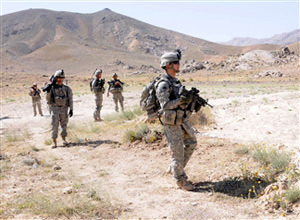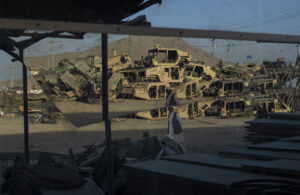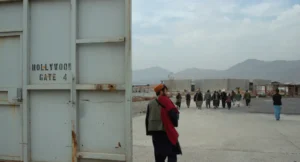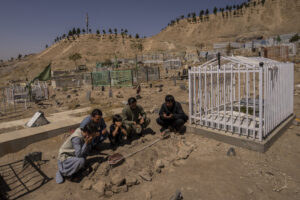They Just Found $1 Trillion in Afghanistan
Afghanistan was thought to be a hardscrabble wasteland good for producing little more than opium -- that is until a gang of American geologists working from old Soviet maps uncovered a variety of mineral deposits thought to be rich enough to radically alter our whole concept of Afghanistan and the war to control it.
Afghanistan was thought to be a hardscrabble wasteland good for producing little more than opium — that is until a gang of American geologists working from old Soviet maps uncovered a variety of mineral deposits thought to be rich enough to radically alter our whole concept of Afghanistan and the war to control it.
Dig, Root, GrowNew York Times:
The United States has discovered nearly $1 trillion in untapped mineral deposits in Afghanistan, far beyond any previously known reserves and enough to fundamentally alter the Afghan economy and perhaps the Afghan war itself, according to senior American government officials.
The previously unknown deposits — including huge veins of iron, copper, cobalt, gold and critical industrial metals like lithium — are so big and include so many minerals that are essential to modern industry that Afghanistan could eventually be transformed into one of the most important mining centers in the world, the United States officials believe.
This year, we’re all on shaky ground, and the need for independent journalism has never been greater. A new administration is openly attacking free press — and the stakes couldn’t be higher.
Your support is more than a donation. It helps us dig deeper into hidden truths, root out corruption and misinformation, and grow an informed, resilient community.
Independent journalism like Truthdig doesn't just report the news — it helps cultivate a better future.
Your tax-deductible gift powers fearless reporting and uncompromising analysis. Together, we can protect democracy and expose the stories that must be told.
Dig. Root. Grow. Cultivate a better future.
Donate today.






You need to be a supporter to comment.
There are currently no responses to this article.
Be the first to respond.